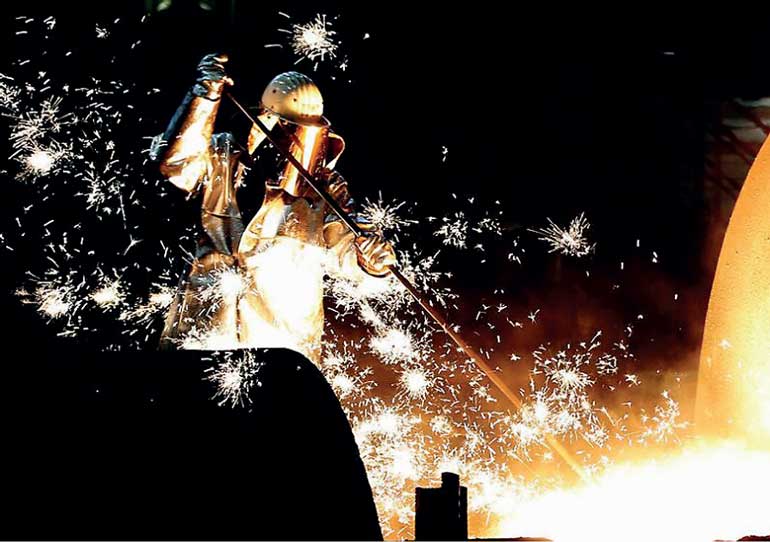Tuesday Feb 17, 2026
Tuesday Feb 17, 2026
Tuesday, 10 October 2017 00:00 - - {{hitsCtrl.values.hits}}

Berlin (Reuters): German industrial production jumped more than expected in August, posting its biggest monthly increase in more than six years, data showed on Monday, in a further sign that Europe’s biggest economy is set for solid growth in the third quarter.
Industrial output increased by 2.6% on the month in August after edging down by 0.1% in July, data from the Economy Ministry showed.
That was the strongest monthly gain since July 2011 and easily beat expectations in a Reuters poll for a 0.7% rise, surpassing even the most optimistic estimate.
Manufacturing output rose by 3.2%, its biggest rise since March 2010, as factories churned out more intermediate goods, capital goods and consumer goods in August. Energy output also rose while construction activity fell.
Manufacturers of cars and other vehicles were the main driver behind the overall surge, the ministry said, also pointing to the fact that plant holidays this year fell in July in some regions.
The ministry said industrial production had gained momentum since the start of the year.
“The good business morale and the positive development in industrial orders point to a continuation of the solid industrial upswing,” it said.
Data published on Friday showed that strong foreign demand, especially from clients outside the euro zone, drove a bigger-than-expected jump in industrial orders in August.
The German economy grew 0.7% on the quarter in the first three months of the year and 0.6% from April to June, driven by increased household and state spending as well as higher investment in buildings and machinery.
Leading economic institutes have raised their growth forecast for the German economy to 1.9% in 2017 and 2.0% in 2018. This would translate into calendar-adjusted GDP rates of 2.2% and 2.1% respectively.
The German government will present its updated projections for GDP growth, employment and inflation on Wednesday.
The economy might even benefit from a small post-election fiscal boost, McKeown said, adding she expected German GDP to rise by an even stronger rate of 2.3% this year.